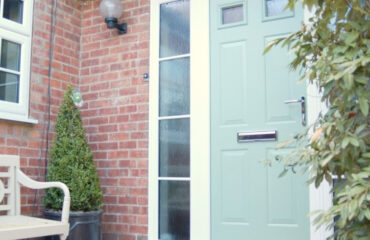
Have you ever wondered How to Lower Your Bills With Double Glazing? In today’s world, skyrocketing energy bills are hitting households harder than ever, leaving many of us searching for ways to cut down on costs without sacrificing comfort. As winter drafts sneak through windows and summer heat seeps in, one solution offers a sustainable fix: double glazing. By adding an insulating layer to your windows, double glazing not only helps maintain a comfortable home year-round but also dramatically cuts energy consumption keeping your utility bills in check. In this article, we’ll explore how double glazing can lower your expenses, boost your home’s energy efficiency, and even add value to your property. Ready to unlock the savings? Let’s dive in.
Section 1: What is Double Glazing?
Double glazing is a type of window construction that features two panes of glass separated by an insulating layer usually a vacuum or a gas like argon or krypton. This layer significantly reduces heat transfer, making double glazing a top choice for energy efficiency. The design works by creating a barrier that traps warmth inside during winter while keeping external heat out in summer, maintaining a steady indoor temperature without over-reliance on heating or cooling.
Double glazing typically uses specialized glass types, such as Low-E (low-emissivity) glass, which has a coating to reflect heat and further enhance insulation. Frame materials also play a role in energy performance: uPVC is popular for its insulation and affordability, while aluminium offers durability, and wood provides a traditional look with good insulation properties. Together, these elements create a durable, efficient system for year-round comfort and savings.
Section 2: How Double Glazing Lowers Energy Bills
Double glazing offers substantial energy savings by acting as an effective insulator year-round. In colder months, double glazing reduces heat loss by trapping warmth indoors. The two panes of glass, separated by an insulating layer of gas or vacuum, form a barrier that minimizes heat escaping through the windows. This helps maintain a more stable indoor temperature, reducing the need to crank up the heating. By lowering the amount of energy needed to keep the home warm, double glazing can lead to significant savings up to 20% on annual heating costs, according to some studies. For a typical household, this can translate to hundreds of pounds saved each year on energy bills.
In warmer months, double glazing continues to deliver energy efficiency by blocking external heat from entering the home. The insulating layer prevents heat transfer, reducing the strain on air conditioning systems and keeping indoor temperatures cooler naturally. This insulation reduces the need to rely on cooling systems, leading to lower electricity consumption and, in turn, decreased utility bills.
Double-glazing windows are rated for energy efficiency, typically on a scale from A++ to E, with A++ being the most efficient. These ratings indicate the window’s ability to prevent heat transfer and reflect thermal energy. Opting for higher-rated double-glazed windows may require a larger upfront investment, but these windows yield better insulation and greater energy savings over time. Windows rated A+ or higher can enhance energy efficiency by up to 40%, meaning that, despite the initial cost, homeowners can expect increased long-term savings on their energy bills.
Projections for savings with double glazing vary based on several factors, including home size, climate, and existing insulation. In colder climates or older homes with poor insulation, double glazing can deliver even more noticeable cost reductions. For example, in a well-insulated home with double glazing, energy consumption may drop by 10-15%, saving the average household up to £235 annually on heating and cooling. The exact savings depend on window materials, such as uPVC or wood frames, and insulation quality. These potential savings make double glazing an appealing investment that not only lowers energy bills but also enhances overall comfort in any season.
Section 3: Additional Cost-Saving Benefits of Double Glazing
Beyond energy savings, double glazing offers homeowners several additional cost-saving benefits, making it a valuable long-term investment.
Reduced Maintenance Costs
Double-glazed windows are designed to be more durable than single-pane windows, with features like toughened or laminated glass that are less prone to damage from weather or impact. This durability translates to lower maintenance requirements, as double-glazed windows generally resist issues like warping, cracking, and condensation better than traditional single-pane options. Homeowners can save on repair and replacement costs over time, and because they are easier to clean and maintain, the need for frequent servicing is reduced, further adding to the cost-effectiveness of double glazing.
Improved Noise Reduction
The insulating layer between the two panes of a double-glazed window is not just for thermal insulation—it also significantly dampens noise from outside. This benefit is especially valuable for homes located near busy streets, airports, or high-traffic areas, where outside noise can be a major disruption. By reducing noise pollution, double glazing improves indoor comfort, allowing homeowners to enjoy a quieter environment. For those who might otherwise consider costly soundproofing solutions, double glazing offers a cost-effective alternative, effectively achieving noise reduction and eliminating the need for additional investment in soundproofing materials or structures.
Enhanced Security
Double glazing also adds a layer of security to the home. The design of double-glazed windows, often using toughened or laminated glass, is far more resilient than standard single-pane glass, making it harder for potential intruders to break through. This added security can potentially reduce home insurance premiums, as many insurers offer discounts for homes with enhanced security measures. By increasing the home’s safety, double glazing not only protects against potential break-ins but also provides financial savings through possible insurance deductions. Together, these security and durability benefits make double glazing a wise choice that offers both immediate and long-term cost savings for homeowners.
Section 4: Other Benefits of Double Glazing for Homeowners
Double glazing offers homeowners several benefits beyond just energy savings, making it an appealing investment for those seeking to enhance comfort, sustainability, and property value.
Increased Property Value
Double glazing is considered a valuable home improvement that can enhance the appeal of a property to potential buyers. Modern, energy-efficient windows are attractive to those looking to save on future energy bills, making homes with double glazing more desirable in the real estate market. This improvement can ultimately boost property value, offering a strong return on investment for homeowners.
Environmental Impact
For eco-conscious homeowners, double glazing is a meaningful step toward reducing a home’s carbon footprint. By cutting down on energy use for heating and cooling, double glazing reduces the overall demand on fossil fuels, thereby lowering carbon emissions. It aligns with sustainable living goals, appealing to individuals seeking environmentally friendly upgrades that contribute to a greener planet.
Condensation Reduction
Double glazing significantly minimizes condensation buildup on windows, which is particularly beneficial in humid or colder climates. Reduced condensation helps prevent common issues such as mould growth and water damage around window frames, improving indoor air quality and reducing maintenance associated with moisture problems. This benefit not only supports a healthier living environment but also adds to the long-term value and resilience of the home.
Section 5: Types of Double Glazing and Their Impact on Savings
When choosing double glazing, the frame material and type of glass can significantly impact insulation, appearance, and overall cost savings.
Different Frame Materials
Frames play a key role in double glazing efficiency. uPVC (unplasticized polyvinyl chloride) is a popular choice because it’s affordable, low-maintenance, and highly effective for insulation. However, aluminum frames, while less insulating on their own, can be enhanced with thermal breaks to improve efficiency and are valued for their sleek, modern look and durability. Timber frames provide excellent insulation and a classic appearance but require more maintenance to prevent weather damage. Although often more expensive, timber is a sustainable option that appeals to those who prioritize eco-friendly materials.
Glass Options
Double glazing can be further tailored with different types of glass to maximize energy efficiency. Low-E (low-emissivity) glass is coated with a thin layer that reflects heat back into the room in winter while keeping out external heat in summer, making it highly energy-efficient. This coating boosts insulation without reducing natural light, offering substantial savings on heating and cooling costs. Toughened and laminated glass provide extra security due to their increased strength, which not only adds durability but can also contribute to energy savings by reducing the chances of gaps forming due to cracks or breaks, maintaining a tight seal for insulation.
Section 6: Choosing the Right Double Glazing for Maximum Savings
Choosing the right double glazing for your home is essential to maximizing energy savings, and several factors can guide this decision for the best results.
Consider Local Climate
The climate in your region plays a major role in selecting effective double glazing. In colder areas, Low-E glass is highly beneficial as it reflects heat back into the room, retaining warmth during harsh winters. Conversely, for warmer climates, glass options that block solar gain can help keep indoor spaces cooler, reducing the need for air conditioning.
Opting for Higher Efficiency Ratings
Choosing double-glazed windows with higher energy efficiency ratings, such as A+ or A++, may come with a higher upfront cost but delivers greater savings over time. High-rated windows are designed to prevent heat transfer more effectively, which helps reduce heating and cooling costs. Investing in these windows ensures maximum thermal performance, translating to consistent energy savings.
Professional Installation
Professional installation is crucial for effective insulation. Experienced installers ensure that windows are fitted perfectly, avoiding gaps, leaks, and other potential issues that can compromise energy efficiency. Proper installation prevents drafts and ensures the full benefits of double glazing, protecting your investment and contributing to lower energy bills. By selecting the right double glazing and professional installation, homeowners can maximize comfort and cost savings for years to come.
Conclusion
In conclusion, double glazing offers substantial benefits for homeowners seeking to reduce bills and enhance their living space. From significant energy savings and improved durability to a boost in property value, double glazing is a wise, long-term investment that pays off in both financial and environmental terms. By upgrading to double-glazed windows, homeowners can enjoy a more comfortable, eco-friendly, and cost-efficient home. To take the next step, consider contacting a trusted double-glazing provider to explore options tailored to your needs and start experiencing the lasting rewards of lower bills and greater energy efficiency.
If this post has been useful to you and you want to discuss your options for enhancing your home with great-looking windows or doors – contact us now at Yorkshire Windows and Doors – Your local FENSA-approved installation experts.



